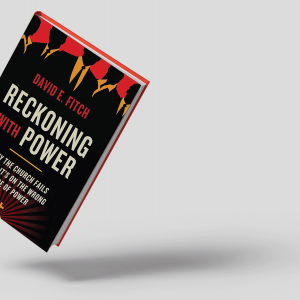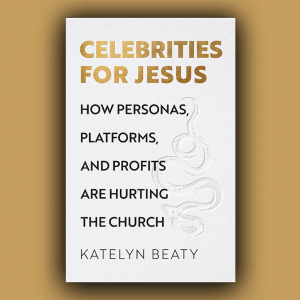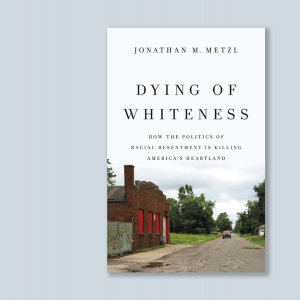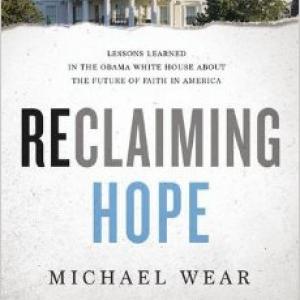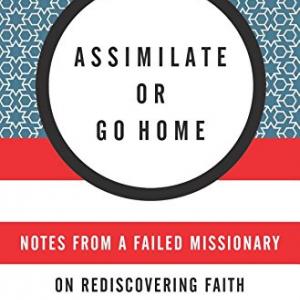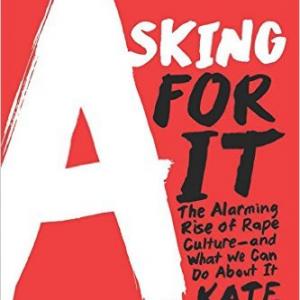
Greg Williams works in digital communications at an advocacy organization in Washington, D.C.
After completing a fruitful academic career at Trinity School for Ministry and Geneva College, Greg sought to put into action all of the academic sociology, history, and theology he had learned. He shifted from merely studying the problems of the world to doing something about those problems in a year at Sojourners before moving on to his current position. His passion, academically and otherwise, is in enabling the church to use her resources to help bring about a more just society.
As you may imagine, this is fairly exhausting, so at home he usually just naps, between baking bread and biking around his beautiful city.
Greg tweets @gwilliamsster and blogs at fourthconfession. Please don't yell at him too much, but I have it on good authority he'd like it if you said hi.
Posts By This Author
What Does Christian Power Look Like?
Reckoning With Power by David E. Fitch invites us to reframe how we think about power structures within the church.
THE POWER OF Jesus works like yeast: At first invisible, it transforms lives and eventually transforms cultures. In Reckoning with Power, David E. Fitch, a pastor and professor at Northern Seminary, explores this power — what he calls “Power With,” a relational and restorative type of power. It is, essentially, the power of love. Fitch contrasts this with worldly power, “Power Over,” which is hierarchical, domineering, and ultimately incompatible with Christianity.
Fitch first examines power sociologically, then biblically. He reads all scripture through the lens of Jesus’ authority to serve and heal. Helpfully, Fitch spends time discussing the difficult passages that seem to endorse God’s power as Power Over, including the Canaanite conquest and the violence in apocalyptic literature. He closes with some practical tactics for churches to help foster Power With, including a process of discernment he calls “IGTHSUS” (“It Has Seemed Good to the Holy Spirit and to Us”). Rather than model our communities after the power of the world, he encourages us to follow Christ by embracing God’s power.
Fitch’s core recommendation for how Power With should operate in churches is based on small groups discerning the Holy Spirit. However, he doesn’t acknowledge that small groups can also be sites of domination. Consider how misogynistic habits of conversation can privilege men’s voices. At times, Fitch is overly optimistic about our ability to relinquish Power Over.
Katelyn Beaty Explores the Underbelly of Christian Celebrity Culture
The outrages of celebrity culture have a material basis, with flashy sneakers and luxurious living, but Beaty’s analysis expands to include a deeper psychological and spiritual perspective on the problem.
What Is the News Doing to Our Hearts?
A review of Jeffrey Bilbro's 'Reading the Times'
UNTIL RECENTLY, I had a boss who kept CNN on all day in her office. I work in communications, so this made sense, but it made me wonder: How can we best consume the news? Does the news make us anxious and divide us? Or does it serve as a way to learn about the world and how we can better love and serve our neighbors? Though the evidence is mixed (we rarely have simple answers in life), Jeffrey Bilbro’s verdict on news consumption in Reading the Times is mostly negative.
Bilbro’s analysis suggests that modern media—understood broadly to include everything from newspapers to social media—divides our attention among trivia, binds us to the daily rather than allowing attention to the eternal, and diverts us from local, embodied concerns to national ones outside our scope of influence. His argument ranges broadly, integrating thinkers from Thoreau and Auerbach to the more modern Wendell Berry and Charles Taylor. The reader feels like they are in a college classroom, in a good way, with a professor who isn’t afraid to synthesize broadly to make their point.
Possessed by Ideology
A review of 'Dying of Whiteness: How the Politics of Racial Resentment Is Killing America's Heartland,' by Jonathan M. Metzl
IMAGINE A MAN seized by a demon. He cannot be bound by chains or confined within walls. He is a danger to himself and everyone around him. In Dying of Whiteness, Jonathan M. Metzl lays out a compelling case that white folks are so convinced of an ideology of whiteness that we are willing to kill, and even to die, for it. One Christian way to talk about this would be to say that white people are possessed.
In his book, Metzl examines three public health case studies: gun culture in Missouri, particularly white male suicide; the failure to expand Medicaid in Tennessee; and the gutting of public schools under cruel budget and tax policies in Kansas. For each, he calculates the years of life lost because of poor political decisions made under an ideology of white supremacy.
Critics Say U.S. Bishops' New Abuse Regulations Lack Lay Involvement
The bishops hope that these new policies will prove powerful and effective in nationalizing and systematizing structures already in place. Advocates don’t trust the Church, especially when there is no required lay involvement in the reporting process.
The Chabad Synagogue Attacker Implicates My Tradition
This twisted hate of anti-Semitism isn't the logical end point of my tradition but rather a perverted version of it — a version that has flourished before but has never been right or faithful.
Coalitions of the Wary
Reclaiming Hope: Lessons Learned in the Obama White House About the Future of Faith in America, by Michael Wear. Thomas Nelson.
THIS IS A PRE-TRUMP book with serious questions for our politics in the age of Trump.
A political memoir from Michael Wear, a young evangelical strategist who worked in Obama’s faith office, it tells stories from the fights of those years and offers a vision of a future faith-in-politics.
I’m a sucker for this kind of memoir: a chastened idealist tells how people worked well together. His ideals have met reality, but Wear still believes politics can help people.
More than merely telling old war stories, Reclaiming Hope makes a sustained case for public service. It argues well that Christian love should motivate us to become active within existing political institutions. Wear highlights specifically race and religious freedom as fields needing further work (a great combination, designed to irritate people all across the ideological spectrum). We need to figure out how to live together and build cultures that respect people and enable them to live without fear.
Although Wear avoids cynicism (and criticizing his former coworkers), his time in high-level politics did chasten him. His reflections on the contentious religious issues raised during his Obama administration tenure, particularly abortion, the contraception mandate, and marriage equality, although only comprising a portion of the book, raise necessary questions for any local or national progressive coalition.
The Far Side of Cynicism
Assimilate or Go Home: Notes from a Failed Missionary on Rediscovering Faith, by D.L. Mayfield. HarperOne.
A FRIEND JUST told me something wise: Be skeptical but never cynical. In Assimilate or Go Home, a series of essays about her ministry and faith experience, D.L. Mayfield tells an even rarer story—of her movement from idealism through cynicism into a deeper faith. She manages to avoid sinking into an easy “wisdom” that simply excuses apathy.
Mayfield’s journey into an unperfected ministry starts when she is an idealistic high schooler, wanting to serve immigrants and refugees in her community. She discovers that this isn’t easy, as she works with and sometimes lives among Somali Bantu refugees, first in Bible college and then through her 20s. Even her best efforts aren’t what the community wants or needs. Instead, she finds her intentions thwarted and her ideals coming up short as she teaches English, mentors teens, and helps friends struggle through obstinate bureaucracies. All of this activity stalls in the face of a dramatically different culture and people who don’t want to be “saved.” This sense of frustration is mirrored in the structure of the book: We are never given much sense of the timeline of Mayfield’s life, just that the same challenges persist.
Mayfield describes baking a cake for the wedding of a girl she had mentored from a Somali Bantu family. This girl was only a junior in high school when she married and moved across the country with her new husband. Mayfield finds herself wondering if all the “countless conversations about colleges and careers ... harping on equitable marriages, on waiting to have children, on finishing high school” might have made things worse.
Finding God in Traffic
Holy Spokes: The Search for Urban Spirituality on Two Wheels, by Laura Everett. Eerdmans
I LEARNED HOW to bike relatively late in life. I was 23, and it cut my commute in half. Since I’d been walking an hour each way for a night shift that started at 11 p.m., that meant a lot. My guru was an elder from my local church who lived across the alley. He taught me how to change a tire, gears, and my life. He showed me hospitality by teaching me about my bike, but it extended much further than that.
UCC minister Laura Everett does much the same thing in Holy Spokes . She uses the metaphor of a bike as a lens to discuss the broader issues of how to relate to people, the Earth, and God: Mostly how, to use Brother Lawrence’s term, to practice the presence of God.
Hospitality in a Time of Pluralism
A New Book Asks What Welcome Means for Christians
Pluralism is valuable because Jesus is the sovereign lord of everything — all places, people, religions, and cultures.
The Amish and the Apocalypse
When the English Fall: A Novel, by David Williams. Algonquin Books of Chapel Hill.
APOCALYPSE IS in the air. Perhaps it was the eclipse in August, or the always accelerating churn of foreign and domestic scandal in the news, or the looming threat of climate change. Or perhaps people have always lived this way. But the world feels weighty and close to falling apart, and we start wondering how we would handle the aftermath.
When the English Fall, by David Williams (no relation), examines that possibility: a post-apocalyptic novel about a catastrophe that makes the low-tech, community-minded lifestyle of the Amish the only viable one. We witness the immediate aftermath of the modern life of the English (the Amish name for all non-Amish people) failing due to a solar storm; society is placed under immense stress without the ability to feed itself. In a fantastic choice, this is examined through the life of an Amish farmer named Jacob—how he adapts and the difficult decisions that he must make for his way of life to survive.
Seeking a Higher Type of Return
How interfaith investors are matching money with morality
RELIGIOUSLY MOTIVATED hate crimes are on the rise in the U.S. Anti-Muslim marches are held around the country. Synagogues receive bomb threats.
And yet interreligious collaboration is also on the rise. With the Jubilee Assembly, faith-motivated investors are pooling their tithes, zakah, and offerings for a higher purpose. The coalition takes its name from the ancient concept of “jubilee”—a regular season of mandated communal economic redistribution, justice, and equity in Judaism, Christianity, and Islam.
Joshua Brockwell, a member of the Jubilee Assembly organizing team, works at Azzad Asset Management, a Muslim-led investment company. “By collaborating and putting our money where our morals are,” wrote Brockwell, “the Jubilee Assembly provides an opportunity to live out our common values and make an impact in our communities."
3 Things You'll Learn by Loving Your Craigslist Neighbor

Image via GongTo/Shutterstock.com
Your weakness is never more obvious than when you show it to strangers — and you can’t avoid showing it to strangers when you live with them.
This is how you really love other people, too. There is nothing like putting yourself in a place where you need other people and their forgiveness to develop on your own love and affection.
The Ever-Ending Story
How to Survive the Apocalypse: Zombies, Cylons, Faith, and Politics at the End of the World, by Alissa Wilkinson and Rob Joustra. Eerdmans.
The world is falling apart.
Admittedly, the world has always been falling apart—since Christ’s resurrection, we’ve been living in the last age, and the New Testament is full of an apocalyptic expectation—but in our modern world, we seem to be spinning apart even faster. In our pop culture, either “winter is coming” or zombies are. Robots who look just like us are threatening genocide or a perverse “Capitol” is forcing our kids to kill each other. How to Survive the Apocalypse, by Alissa Wilkinson and Rob Joustra, looks at this theme in modern culture and what it might tell us about ourselves.
This is a book written by college professors, and I mean that in the best possible way. They define their terms, keep us engaged, and push us toward engaging the world like the best professors do. And, like all good professors, they are honest about their ideological approach: They are strongly neo-reformed and use Charles Taylor’s opus A Secular Age to interpret the culture that they address.
Indeed, How to Survive the Apocalypse is basically a fleshing out of Taylor’s description of the modern age (and its difference from a pre-modern era) through fictional ends of the world. Wilkinson and Joustra examine individualism and autonomy, a quest for and skepticism of authenticity, and the appropriate source of power (the questions and obsessions that Taylor sees at the root of modernity) through a half-dozen TV and movie apocalypses and dystopias, ranging from The Hunger Games to Her. These questions press all the more in our age, in which we seem to have lost the transcendent.
Change or Complicity
Asking for it: The Alarming Rise of Rape Culture- and What We Can Do About It, by Kate Harding. Da Capo Press.
IN THE COURSE of a few months in the past year, I learned that three women and men close to me had been sexually assaulted—as children and as adults. Hearing their stories broke me out of many of the lies surrounding rape that I had fallen into without even realizing it.
Kate Harding’s Asking for It attacks the same lies and misconceptions. She explores how we, as a culture, embrace myths surrounding rape and sexual assault. Theoretically, we think of rape as a terrible crime that takes away people’s right to choose what to do with their bodies—but practically we have trouble believing that it actually happens, or if it does that it is really that bad. We joke about rape, we believe it is caused by women acting like “sluts,” or act like the only kinds of rape that really matter are those in which a white woman is attacked by a brown man. We normalize assault and minimize it.
We have built a society and criminal justice system that protect abusers and place the responsibility on women to avoid being assaulted rather than on men to not attack.
Sadly, none of this is surprising, but Harding’s exploration of these familiar truths is biting and unrelenting.
She is offensive at times, but about things we should be offended about. When I recoil at her describing a rape by saying he “put his dick in her,” I realize how much I should be disgusted by the assault itself. We can numb ourselves by using clinical language to talk about rape and sexual assault, but Harding refuses to give us distance from the violence of these attacks.
Harding suggests practical changes that we can make—such as educating our kids, reforming our criminal justice system, and changing our language. These practical measures consist of the minimum on which we all ought to agree: My conservative friends, together with my progressive ones, can agree that rape jokes are offensive, hurt people, and contribute to a society in which people are more easily hurt. As Harding notes, even when we have radically different ideas about the proper scope of sexual activity, we should all agree that clear consent is necessary for a healthy sexual relationship.
Myths of Masculinity
Man Enough: How Jesus Redefines Manhood, by Nate Pyle. Zondervan.

Man Enough / Amazon
MOST CULTURES have ways to initiate boys into manhood. Being a man is thus seen as an earned status that must be maintained, which can generate tremendous anxiety. (This is similar to what Simone de Beauvoir observes in The Second Sex about being a woman—one is not born but rather becomes one.) I’ve felt this anxiety myself in social spaces where masculinity is outside of the norm: I’m forced to think through how I am a man and what that means.
Nate Pyle confronts some of this anxiety in Man Enough. He explores how being rooted in Christ can seat the Christian man’s identity more firmly in Jesus. Rather than trying to frantically maintain any particular form of masculinity, we can rest our identity in Christ.
This is key to freeing us from ridiculous posturing and status games. Pyle fleshes his argument out not only through scripture and ethical reflection but also by powerfully recalling his own personal development as a man.
Still, as Pyle puts it, “saying Jesus defines what it means to be a man is easy; actually defining manhood in light of Jesus is harder.” We have so many pictures of Jesus in the New Testament, from the righteously angry Jesus condemning the false teachers of his day to the Christ restraining his power and submitting to death on a cross. Perhaps, Pyle argues, this is the point: Jesus is complex, so any picture of how to be a man (or a woman) needs to be similarly complex.
I Explain Things to Women at Parties

Image via Jason Salmon/Shutterstock.com
Scene: A row house in Adams Morgan, Washington, D.C.
Me: Hi, Joanna! Bob tells me you're writing a book about mansplaining — that’s so interesting!
Joanna: Yeah, I'm excited! It got picked up by a publisher and they're thinking of doing a pretty serious marketing push.
Me: Awesome. I'm a pretty quiet dude by inclination, so I thought I was immune to mansplaining. Then I found myself holding court on Aristotelian metaphysics at a party last week and realized that I was terribly mistaken. I totally speak over and ignore women who know what they are talking about and spend ages explaining things to them anyway.
Joanna: Well, the concept is a bit more complicated than that—
Me: And, of course, society teaches women that you need to nod politely even when you really don't care.
Joanna: Well—
Me: And usually I'm too oblivious to even notice! I think it might even be worse, in a way, when I'm complicit in these conversations, when I don't try to make space for women who know what they're taking about. Most of the time — shamefully — I prefer to listen to a dude gas on about something. Why do I do this? Two big reasons that I can think of (I hold up two fingers):
First (index), I'm a sexist pig. …I can't really play that down. I don't pay attention to women like I should, because I simply don't care enough. I've got some serious respect I need to build when it comes to actually paying attention to people who know what they are talking about, especially when those people are women. I mean, I call myself a feminist but I still have a lot of work left to do.
Joanna: Well, most guys do. But—
Me: Second (add the middle), like with most of the ways men screw up, I think this flows from a deep insecurity.
The Pope and the Bomb

Image via Andrew Rybalko/Shutterstock
Pope Francis is not an innovator in his approach to the topic of nuclear weapons (though he did extend the logic of earlier ethical thought). The consistent teaching of the Roman Catholic Church since Pope John XXIII has been that the use of nuclear weapons in war is immoral because it conflicts with the principles of just war theory. Problematically for the principles, the violence wrought through nuclear war is extensive enough that there can be plausible victor in a nuclear exchange, and no chance to protect noncombatants from becoming involved. In short, the church teaches, the use of nuclear weapons is indiscriminate and always disproportionate to the good that can be hoped to be achieved.
Pope Francis' whole papal agenda was brought into focus by Dr. Love when she summarized his mission as care for the three 'P's — his concern for the poor, for the planet, and for peace. Various elements of this are obvious from his Laudato Si', among other addresses and initiatives, but all three of these come together in Francis' concern to see a world free from the threat of nuclear weapons and potential of nuclear catastrophe.
'Sex Is Great! And Will Destroy Us All'
'Virgin Nation' and Evangelical Purity Rhetoric

Image via CHAINFOTO24/Shutterstock
I do believe that we are called to purity: a comprehensive purity that encompasses our sexual nature and other parts of our life. The apostle James saves harsh words for people who aren’t pure in their words (see his metaphor of fresh and salt water) and in their care for the poor, just as Paul explicitly calls us to sexual purity. Holiness requires a holistic purity. As Augustine — along with the vast majority of Christian tradition — teaches, purity is an attribute of the soul, not of the body.
More than this, a lack of purity endangers not the nation (to which Christians owe respect), but the church (which is our family). This is why Paul is so concerned about impurity in 1 Corinthians 5 — it doesn’t fit with our calling as a church. If we adopt a nationalistic rhetoric around purity, we shift our primary loyalty from the church to the nation, with devastating consequences for our Christian life.
Christians can't ignore an imperative to purity. But we also must avoid shaming people and continuing the toxic messages of apocalypticism and nationalism that Moslener records in Virgin Nation. Contrary to those arguments, our lack of sexual purity doesn’t doom our nation. But a lack of holistic purity might kill our church.
Diplomats Weaken Results of Annual Human Trafficking Report

Image via GrAl/Shutterstock
Yesterday, Reuters reported that top bureaucrats in the U.S. State Department overruled experts and analysts by successfully urging that 14 countries be upgraded in the 2015 Trafficking in Persons Report (TIP) due to their strategic importance to the U.S. This report, released last week, evaluates how well 188 countries are fighting human trafficking by ranking countries in three tiers. These rankings are taken seriously in the U.S. government and around the world, with related impact on trade, public perception, and diplomatic relations.
Upgraded countries include those that the United States wants to be friendly with for diplomatic reasons (such as Cuba or China) but also countries such as Malaysia, which could not be included in the Trans-Pacific Partnership, a major trade treaty, if it was ranked poorly in the TIP report.
